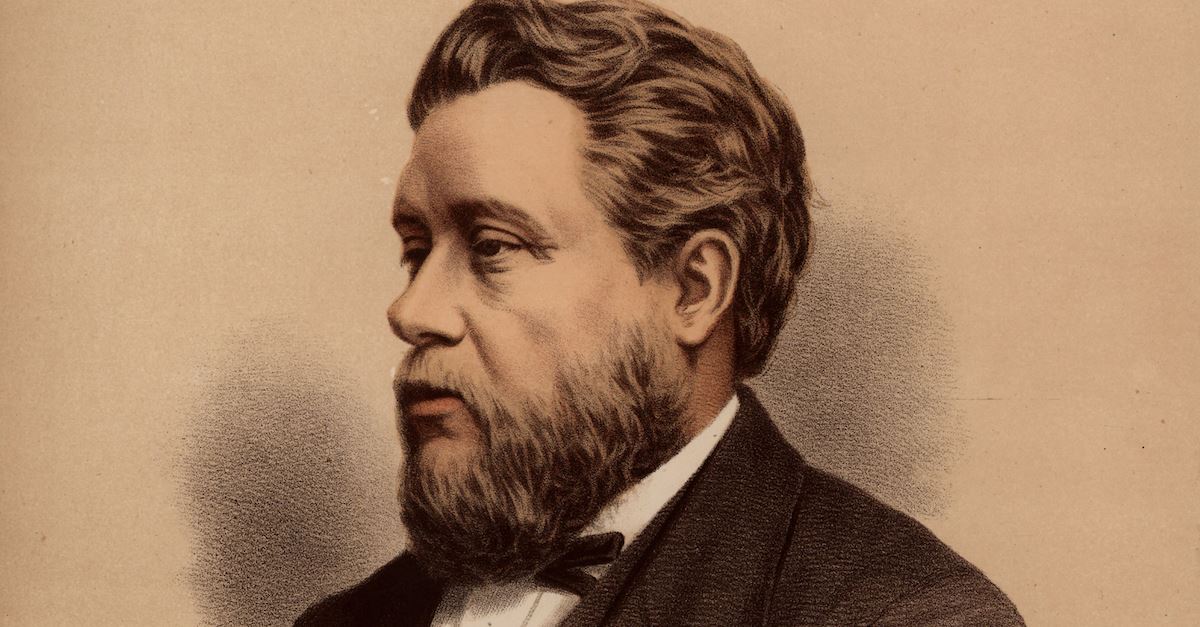
Charles Spurgeon (1834-1892) was one
of the greatest preachers of the Victorian era. Known as the “Prince of
Preachers,” it is estimated that he preached the gospel to over a million
people, and personally baptized 15,000 new believers converted under his
ministry. During his vibrant tenure, Spurgeon ministered through two deadly outbreaks
of cholera in London, one in 1854 and another in 1866. The latter was more devastating
of the two, claiming over 5,550 lives.
Despite the disease,
Spurgeon stayed steadfast; preaching the Gospel, ministering to the sick and
urging Christians to lead the city in repentance. The parallels between his
time and our time are striking. In going over his sermons and stories from his biographers
here are few noteworthy gleanings that we can apply directly to our situation.
·
The Pandemic Was
A Perfect Time to Rest in God’s Peace
In the 1854 epidemic, Spurgeon
was returning home from yet another funeral when a shard of paper wedged in a
shoemaker's window caught his eye. It said, “Because thou hast made the Lord thy
habitation, there shall no evil befall thee, neither shall any plague come nigh
thy dwelling.” The preacher recognized this quotation from Psalm 91:9-10. Surgeon
subsequently wrote: “The effect upon my heart was immediate. Faith appropriated
the passage as her own. I felt secure, refreshed, girt with immortality. I went
on with my visitation of the dying in a calm and peaceful spirit; I felt no
fear of evil, and I suffered no harm.”
·
The Pandemic Provided
an Open Door for the Gospel
With the death angel visiting
so many homes, Spurgeon found that people’s hearts were suddenly sensitized to
the Gospel. He had multiple occasions to make house calls and see souls saved
on their sickbeds. He wrote:
“All day, and sometimes
all night long, I went about from house to house, and saw men and women dying,
and, oh, how glad they were to see my face! When many were afraid to enter
their houses lest they should catch the deadly disease, we who had no fear
about such things found ourselves most gladly listened to when we spoke of
Christ and of things Divine.”
On one occasion, at three
in the morning, Spurgeon was summoned to visit a dying man. Surprisingly, this
was not a Christian, but a newspaper reporter who had opposed him. Sadly, the
man passed away before Spurgeon could get to him, but it goes to prove a well-worn
adage, “There are no atheists in foxholes.” We ought to expect the same kind of
Gospel opportunities to present themselves during these days of uncertainty.
·
The Pandemic Was
a Wake-Up Call for Repentance
On Aug. 12, 1866 Spurgeon preached
a message to his congregation that he titled, “The Voice of Cholera.” In it he made
some scathing remarks about London’s sins:
“Brethren, let me ask you soberly, without fanaticism, to
consider whether there has not been enough in England, and especially in this
great city, to make God angry with us? Has there not been enough to make him
say, “I will walk no more with this people: I will chasten them severely, and
send heavy judgments upon them?” Is not the drunkenness of England enough to
provoke God to strike it with all his thunderbolts? Shall God not visit London
for the sins which nightly pollutes her streets, festers in gilded halls, and
riots amid revelry and music?
The masses of our people
do not regard God, do not care for the Lord Jesus, and have no thought about
eternal things. We believe that God sends all pestilences, and that he sends
them with a purpose. It is our business as ministers of God, to call the
people’s attention to God in the disease, and teach them the lesson which God
would have them learn. This dreaded cholera is only a gentle blow from His
hand, and if its lesson is not learned He may remove the candle of his gospel
out of its place from those who have despised it.”
If that warning applied to
London over 150 years ago, then how much more does it apply to America today?
Indeed, judgment begins at the house of God (1 Peter 4:17). God’s people must
repent for our nation—if not us, then who? If not now, then when?
·
The Pandemic Rallied
the Church into Action
Christians of all
generations follow the same pattern—in times of prosperity spiritual desire
wanes, but in times of calamity spiritual desire increases. Spurgeon noted that
the pandemic served to help purify the church, as trials often do. He preached
to his church about God’s overall purpose:
“If you ask me what I
think to be the design, I believe it to be this—to waken up our indifferent
population, to make them remember that there is a God, to render them
susceptible of the influences of the gospel, to drive them to the house of
prayer, to influence their minds to receive the Word, and moreover to startle
Christians into energy and earnestness, that they may work while it is called
today.”
Finally, speaking in 1866
Spurgeon gave this charge to his people:
“And now, again, is the
minister’s time; and now is the time for all of you who love souls. You may see
men more alarmed than they are already; and if they should be, mind that you
avail yourselves of the opportunity of doing them good. You have the Balm of
Gilead; when their wounds smart, pour it in. You know of Him who died to save;
tell them of Him. Lift high the cross before their eyes. Tell them that God
became man that man might be lifted to God. Tell them of Calvary, and its
groans, and cries, and sweat of blood. Tell them of Jesus hanging on the cross
to save sinners. Tell them that: “There is life for a look at the Crucified
One.”
-DM
No comments:
Post a Comment